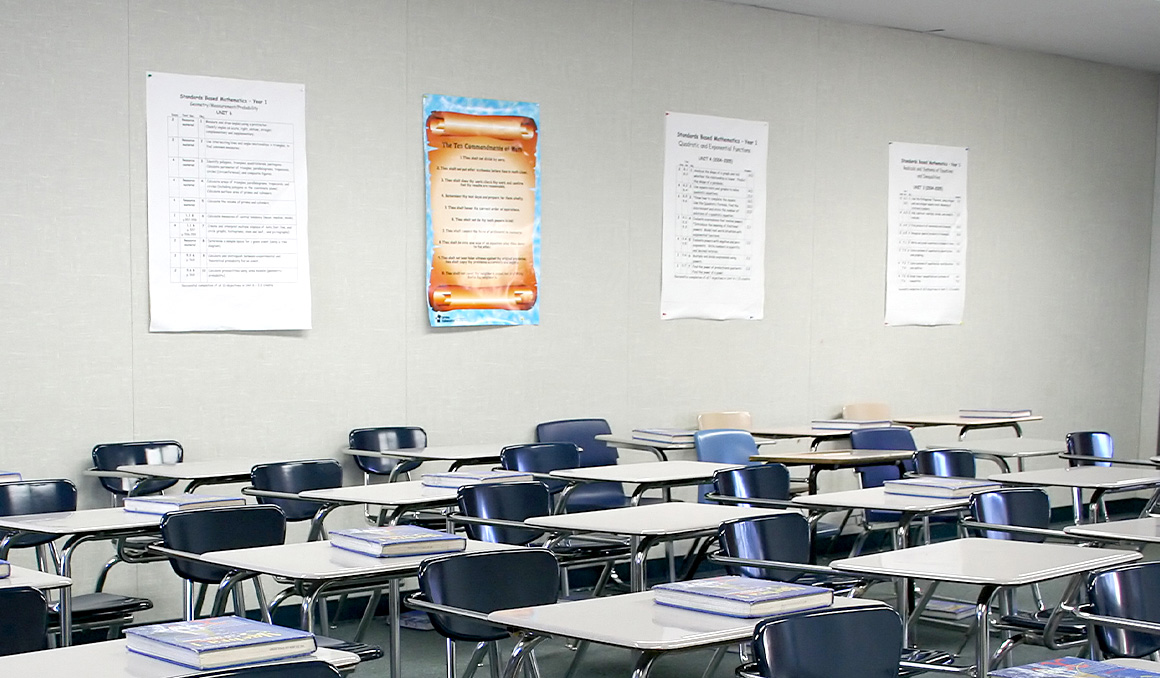Re-Launching Friday – Jun 21st.
Louisiana has become the first state to require that the Ten Commandments be displayed in every public school classroom under a bill signed into law by Republican Gov. Jeff Landry on Wednesday.
The GOP-drafted legislation mandates that a poster-sized display of the Ten Commandments in “large, easily readable font” be required in all public classrooms, from kindergarten to state-funded universities.
Although the bill did not receive final approval from Landry, the time for gubernatorial action — to sign or veto the bill — has lapsed.

Legislative Momentum and Cultural Significance
The bill, championed by Representative Dodie Horton, passed through the Louisiana legislature with significant backing. Proponents argue that the Ten Commandments, a cornerstone of Judeo-Christian ethics, provide foundational moral guidance that transcends religious boundaries.
The law requires that the commandments must be displayed in a prominent location within every classroom, with the objective of reinforcing a moral framework in educational settings.
The displays, which will be paired with a four-paragraph “context statement” describing how the Ten Commandments “were a prominent part of American public education for almost three centuries,” must be in place in classrooms by the start of 2025.
Supporters of the legislation assert that the Ten Commandments embody universal principles such as respect, honesty, and justice, which are essential for the development of young minds. “This is about moral values, not religious indoctrination,” Horton emphasized. “The Ten Commandments are a historic document that has influenced our legal system and societal norms.”
Legal and Constitutional Implications
The passage of this law has not been without controversy.
Supporters counter that the Ten Commandments hold a unique place in American history and jurisprudence, frequently referenced by the Founding Fathers and displayed in governmental buildings across the nation. They maintain that the commandments’ inclusion in classrooms serves an educational rather than a proselytizing purpose.
Critics , on the other hand, argue that the mandatory display of religious texts in public schools breaches the Establishment Clause of the First Amendment, which prohibits government endorsement of religion.
Organizations such as the American Civil Liberties Union (ACLU) have expressed concerns that the law could pave the way for similar measures in other states, potentially leading to increased religious influence in public institutions.
Broader Educational and Societal Impact
The enactment of this law raises significant questions about the role of religion in public education. Advocates argue that exposure to the Ten Commandments will instill a sense of moral clarity and ethical behavior in students, potentially reducing incidents of bullying, cheating, and other forms of misconduct.
Opponents, on the other hand, fear that this measure could alienate students from diverse religious backgrounds or those who adhere to secular worldviews. The law’s critics posit that the classroom should remain a neutral space free from religious symbolism to ensure inclusivity and respect for all students’ beliefs.
Public Reaction and Future Prospects
Public reaction in Louisiana has been polarized, with strong opinions on both sides. Many parents and community leaders support the initiative, viewing it as a return to traditional values in an increasingly secular society. “Our schools need a moral compass,” said one Baton Rouge parent. “The Ten Commandments provide that guidance and remind students of the importance of integrity and respect.”
Conversely, some educators and legal experts caution against the potential legal battles and societal divisions this law may provoke. The ACLU has hinted at possible legal challenges, suggesting that the law’s implementation may face hurdles in the judicial system.
A Precedent for Other States?
Louisiana’s decision to mandate the display of the Ten Commandments could serve as a precedent for other states considering similar measures. Texas, for instance, has recently introduced legislation advocating for the inclusion of the Ten Commandments in public schools. This trend reflects a broader cultural movement among certain conservative groups aiming to reaffirm the presence of religious values in public life.
Representative Horton and other proponents believe that the success of this legislation in Louisiana will encourage other states to follow suit. They argue that the Ten Commandments are not only a religious text but also a historical document that has shaped the moral and legal fabric of the nation.
Concludion
The debate over the display of the Ten Commandments in public schools encapsulates broader societal tensions between secularism and religious heritage. As Louisiana moves forward with the implementation of this law, the outcomes will be closely watched by both advocates and detractors. The discourse surrounding this legislation underscores the enduring complexities of balancing religious expression with constitutional principles in America’s public institutions.
While the ultimate impact of this law remains to be seen, its passage marks a significant moment in the ongoing conversation about the role of religion in public education. Louisiana’s decision underscores a growing desire among some segments of the population to reassert traditional values and moral teachings in the face of perceived cultural and moral decline.
As the nation watches, the ramifications of this law will undoubtedly influence future legislative efforts and judicial interpretations concerning the intersection of faith and public life.